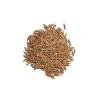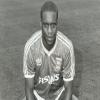| Despatches From The Front Line Part Seven: Back in Blue 16:56 - May 18 with 4499 views | BlueBadger |
As always, all names and locations have been changed.
Trigger warning: This post contains content you may find upsetting.
So far, My Adventures With Covid-19 have been all about my work as an Outreach nurse, supporting the wards with the sickest of the sick 'in the wild'. That's done with for the time being as 3 weeks ago I was semi-voluntarily redeployed back to the ITU I worked upon for 12 years to shore up numbers and add much-needed experience to the team(the title of this post reflects my uniform colour change - my usual outfit is a rather natty custom made set of scrubs in turquoise - I'm now in varying shades of blue, depending on what's available in the changing room).
It's been a not particularly gentle reintroduction, it's fair to say.
12 hours in full PPE of gown(fabric if you're lucky, super hot plastic-lined paper if you're not), gloves, visor(a choice of light-but-misty-to-look-through medical visors or heavy-but-clear-vision 'helmets' donated by a local builders' merchant) and FFP3 mask(with a filter if you're lucky - you'll live without one, but you'll be a lot more comfortable with one. Oh, and those pictures in the news showing healthcare workers with facial pressures sores after being in them all day - totally A Thing) is no fun for starters, particularly if, like me, you're starting to develop a distinctly 'middle aged' bladder.
Then there's the patients - I'll probably go over this in more detail in the future when I feel closer to the top of the Covid ITU learning curve, but let's just say they stay longer, get sicker and are more unstable than any other ITU patient group in my experience apart from maybe severely septic surgical patients.
Days 1-5 are busy but nothing I can't cope with without a bit of a 'I've had a year out of this, give me some time here please' run-up at them.
Then comes day 6.
There comes a time in the beginning of every ITU nurse's careers when they have *that* day - the one that overwhelms you utterly - either by the sheer amount of work involved in keeping someone alive, a sudden rapid deterioration of condition or Something Else Horrible.
I might have 12 years ITU service under my belt and I'm not a greenhorn by any means but I'm still finding my feet at this point and so I figure I'm allowed a second *that* day.
The patient is in their early 60's and has a previous history of type 2 diabetes and only one working kidney following a renal carcinoma a few years ago but this was successfully treated(by removing the offending organ) and they have enjoyed good health since.
They've been in ITU 18 days and spent 17 of those intubated.
Handover comes from Kim, a lass in her early 30's with a wealth of ITU experience who's married to a serviceman and has thus, never spent longer than 2 years working anywhere.
Despite the head-to-toe PPE I can see she's worried and extremely tired from two nights spent struggling with this patient.
An A-E assessment and handover tells me the following:
A - Airway is safe, due to the presence of an ET tube which is safely secured with fabric ties and an inflatable cuff somewhere just above the patient's larynx.
B - Breathing is severely compromised - the patient is on 70% oxygen via the ventilator, which, due to severe ARDS reducing lung compliance, is needing high airway pressures to inflate the lungs adequately. In an attempt to make the lungs more compliant, the patient has been started on a muscle relaxant drug(sometimes called a 'paralysing agent by anaesthetists) to reduce the amount of 'fight' the lungs have against the ventilator.
C - Cardiovascularly, they're requiring a high dose of noradrenaline to support blood pressure, are running a slightly fast heart rate and the one kidney is in a severe stage 3 AKI and needing dialysis. An estimated 20%+ of ITU patients with covid will suffer an AKI severe enough to need dialysis. On top of this, Kim tells me that any slight movement or change of the patient's position results in either them dropping their oxygen saturation levels, their blood pressure, or both. Urine out is, unsurprisingly given the AKI, low BP and fluid removal on dialysis, minimal.
D - Disability. The 'neuro' bit. When I teach people A-E assessment, I tend to informally refer to 'D' as 'drowsy', so it concentrates the thinking a bit better. the patient is heavily sedated on two strong sedatives - propofol, an anaesthetic agent and fentanyl, a strong opioid. This is needed for two reasons 1 - ET tube tolerance and 2 - being under the influence of muscle relaxants is deeply distressing if you're in any way awake - those stories of patients 'awake' on the operating table but being unable to move you heard a lot about in the 90's? That's what muscle relaxants are like if you're not properly sedated - drugs with huge potential to cause a massive amount of mental trauma. In addition we're running an insulin infusion to control blood sugar - it's running high, unsurprisingly, given the severity of the patient's illness.
E - Exposure or, as I teach it, 'everything else'. There's pressure sores around their mouth from ET tube ties, a nasogastric(NG) tube in place for feeding and bowels haven't been open for around 6 days now. Ominously, Kim reports that the patient appears not to be digesting their feed - she's aspirated 500mls from their stomach at 6 when doing a routine 'are they absorbing' test.
So, three organs confirmed as being 'in failure' and it seems like the gut is coming out in sympathy. and that's before we get into the persistently high blood sugar and skin damage.
I do some checks of my bed space and start tweaking and fine-tuning around my kit and drugs to see if I can improve ANYTHING. Adjusting the ventilator settings results in improved oxygenation but at the cost of much higher airway pressures(and the potential for lung damage) and dropping blood pressure(thanks to the effects of a raised intra-thoracic pressure courtesy of the ventilator pressures on BP), so I abandon that.
Fiddling with sedation(propofol in particular is notorious for lowering blood pressure) results in slightly better blood pressure at the cost of an increasing heart rate - the patient is likely waking on some level and becoming distressed, so I abandon that as well.
Long story short, any and all of the tricks I try(and I have a LOT of tricks) results in one thing mildly improving at the expense of something else getting worse.
After an hour and a half of this, I'm resigned to a very long and depressing day of struggling to control anything for this very unstable, very sick patient and with no control comes no improvement and sit down to ponder my options when Anji and Sanjay appear. Anji and Sanjay are our two consultants for the day - Anji and Sanjay are both Indian, Anji is in her late 30's who's polite and soft approach masks a steely interior and and Sanjay is an astonishingly clever guy in his late 40's who's clinical knowledge is pretty much peerless but his communication and 'people' skills are sometimes lacking - he's not rude as such, just a bit 'on the spectrum' and definitely a chap you need to get to know, if I might be permitted to use a rather vulgar term.
Two consultants at a bed space before 10 is not A Good Sign.
'How are we doing here BB' Anji asks me. I explain the above to her and she exchanges glances with Sanjay, who nods very slightly.
'Yeah, I think you're probably right about this poor soul' says Sanjay.
Anji turns back to face me and says 'I'm going to speak to the family. I've been looking at this one for a few days now and we're getting nowhere. I Think we're at the stage of prolonging death now, rather than saving life'.
This would be why she's brought Sanjay in then. A second opinion and confirmation that we're all on the page.
Anji goes off to speak to the family and, after further discussion with Sanjay, we decide to stop the dialysis machine in anticipation of withdrawing care later.
Anji reappears after an hour to tell me that she's spoken to family an they've requested a Zoom call so that they can say goodbye. I call our family liaison officer to arrange a time and myself and Tomasz, another returnee to the unit stop and strip down the dialysis machine and smarten up the patient up with a fresh gown, top sheet and some 'bits that show' personal care(typical things you'd do here would be a shave, face wash, hairbrush and changing of ET tube ties) and then the call happens.
The family are heartbreakingly dignified and composed in the face of not only the worst news ever, but happening in the worst possible fashion.
When they've said their goodbyes I explain to the family how withdrawal of care will work, reassure them them that their loved one will not suffer through the process and ask if there's anything they'd me to do for them.
They ask that they're not left alone and that I talk to them about happier times - grandchildren, holidays and the garden. I make notes on things to say and close the Zoom chat.
Then it's the business of withdrawal of care.
It's important to remember that when you withdraw the care, you are not 'killing' the patient, you are withdrawing any and all support and allowing nature to take its course. This is what we tell to junior embers of the team when we're doing it and, on a cold logical level, it's true.
It's still feels like murder though. Every time.
Thankfully I've only had to do it half a dozen times my career(you remember them all) but it feels like murder every time.
The process starts with me giving a generous bolus of both sedatives. When I say 'generous, I mean 'generous'. The doses involved would generally be good enough for a general anaesthetic. I then stop the muscle relaxant and increase the rate of infusion on my sedatives. Next to stop are the insulin and feed and for good measure I aspirate the NG tube. There's 400mls of undigested feed sat there, so I'm sure they'll feel better for getting rid of that sitting there.
The final stage of the process is weaning down oxygen, ventilator support and blood pressure support. This takes me about 30 minutes all told and I'm talking to the patient all the way through, monitoring for signs of distress(increasing heart rate, rising blood pressure) and adjusting sedation accordingly.
Finally, with everything off or, in the case of the ventilator, at minimal settings I sit and hold the patient's hand, chatting to them about the things their family wanted them to hear and watch as the life signs gradually fade out over the next half hour.
With the ECG flat and no spontaneous breaths happening, I check for a carotid and femoral pulse, switch off the ventilator and monitor and inform the duty SHO so they can certify the patient's passing.
As for me, after calling the family to let them know that their loved one has passed peacefully, I'm headed for a cuppa(I NEED some 'out time) before laying them out and sending them to 'Rose Cottage'.
Stay safe all.
Additional reading(all pretty technical):
AKI in Covid-19:
https://www.thelancet.com/journals/lanres/article/PIIS2213-2600(20)30229-0/fullt
Intra-thoracic pressure and blood pressure:
https://www.sciencedirect.com/topics/immunology-and-microbiology/thorax-pressure
Abbreviations and explanations : https://wwww.twtd.co.uk/forum/478292/4576782/common-
Previously...
Part one: https://wwww.twtd.co.uk/forum/478292/despatches-from-the-front-line-part-one/#0
Part two : https://wwww.twtd.co.uk/forum/478646/despatches-from-the-front-line-part-two-a-s
Part three : https://wwww.twtd.co.uk/forum/478885/despatches-from-the-front-line-part-three-w
Part four: https://wwww.twtd.co.uk/forum/479197/despatches-from-the-front-line-part-four-id
Part Five: https://wwww.twtd.co.uk/forum/479404/despatches-from-the-front-line-part-five-ho
Part Six: https://wwww.twtd.co.uk/forum/480252/despatches-from-the-front-line-part-six-arr
[Post edited 31 May 2020 12:39]
|  |
| |  |
| Despatches From The Front Line Part Seven: Back in Blue on 17:08 - May 18 with 4372 views | Steve_M |
Bloody hell, that's a hard day. Thanks again for sharing, for all the glibness of the 'but they were sick anyway' people there are years of productive life being lost, sometimes in very horrible ways. |  |
|  |
| Despatches From The Front Line Part Seven: Back in Blue on 17:10 - May 18 with 4356 views | thebluewizzard |
Can only say I'm full of admiration for what you do. |  | |  |
| Despatches From The Front Line Part Seven: Back in Blue on 17:21 - May 18 with 4356 views | BlueBadger |
| Despatches From The Front Line Part Seven: Back in Blue on 17:08 - May 18 by Steve_M |
Bloody hell, that's a hard day. Thanks again for sharing, for all the glibness of the 'but they were sick anyway' people there are years of productive life being lost, sometimes in very horrible ways. |
This day was why NotSure got the gobfull he did off of me last Sunday, just before his ban hammering. [Post edited 18 May 2020 17:26]
|  |
|  |
| Despatches From The Front Line Part Seven: Back in Blue on 18:16 - May 18 with 4228 views | Plums |
Thanks BB, that’s really sobering but also really reassuring and comforting. Thank you for all you’re doing and for sharing these experiences. |  |
|  |
| Despatches From The Front Line Part Seven: Back in Blue on 23:38 - May 18 with 4096 views | CBBlue |
| Despatches From The Front Line Part Seven: Back in Blue on 17:10 - May 18 by thebluewizzard |
Can only say I'm full of admiration for what you do. |
Sat here in tears reading all that. Thank you BB and all your colleagues for everything you're doing. |  |
|  |
| Despatches From The Front Line Part Seven: Back in Blue on 10:39 - May 19 with 3951 views | EdwardStone |
Very well written Mr BB.....and very hard to read
How utterly sad, but thank you for allowing us an insight to the horrors of this disease
All best wishes to you and your colleagues |  | |  |
| Despatches From The Front Line Part Seven: Back in Blue on 21:26 - May 19 with 3785 views | factual_blue |
God.
Heart-jolting stuff.
I've never felt less comfortable about being diabetic. |  |
|  |
| Despatches From The Front Line Part Seven: Back in Blue on 10:07 - May 20 with 3645 views | usm |
Wow, tough reading that, but I admire you greatly.
Keep up the excellent work. |  |
|  |
Login to get fewer ads
| Despatches From The Front Line Part Seven: Back in Blue on 11:55 - May 20 with 3621 views | bobwya |
Having read that I'm trying to hold back the tears. My admiration for you and your colleagues has,, if possible increased.
I don't know if it helps you in some way by putting your actions down and
explaining them. I do hope it does |  | |  |
| Despatches From The Front Line Part Seven: Back in Blue on 15:28 - May 21 with 3390 views | Swansea_Blue |
Gulp. How you guys keep things together having to do all this is beyond me. I'm tempted to say that the patient probably had a worse day, but on reflection that doesn't sound right. Sounds like you went out of your way to make them comfortable.
Incredibly sobering stuff and I'm not going to complain about a bit of back ache or eyestrain from being hunched over a computer ever agin. |  |
|  |
| Despatches From The Front Line Part Seven: Back in Blue on 21:32 - May 21 with 3318 views | jeera |
A lot to absorb there mate and that's just reading the words.
It's a hard job you and your colleagues do there fella.
Appreciate the effort you put into these posts too.
Sorry for the chap, his family, and for the people there like yourself involved in such sensitive decision making. It must be terribly difficult to accept that sometimes there just is no more to be done.
You want something to work and try all you can, drawing on all you've got.
You have to console yourself in the knowledge that there are many happy people out there right now who have had more success because of those efforts. |  |
|  |
| Despatches From The Front Line Part Seven: Back in Blue on 22:47 - May 23 with 2910 views | Nthsuffolkblue |
Fascinating and eye-opening read as ever, Badger.
Thank you so much for the care and dignity you clearly show to someone at the end.
You are a hero. |  |
|  |
| Despatches From The Front Line Part Seven: Back in Blue on 16:43 - May 25 with 2744 views | blueconscience |
No time for silly dancing then? |  |
|  |
| |